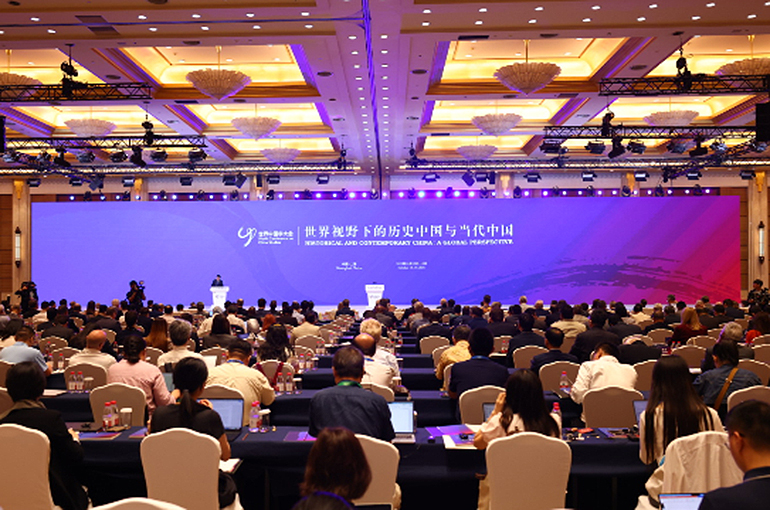Select Language:
China aims to lead with wisdom and serve as a model for others, rather than disrupt the global environment or threaten nations through military force, according to an Egyptian political science assistant professor.
“China does not want to be the world’s policeman but rather the elder sibling,” said Dr. Hadeer Talaat Saied Abdellatif Mahlees at the second World Conference on China Studies in Shanghai. “It does not seek to impose its own way of doing things on others, recognizing that what works for China might not be suitable for every society, as each has its own unique traits.”
The conference, organized by the State Council Information Office and the Shanghai municipal government, attracted roughly 500 esteemed experts from around the world. With the theme “Historical and Contemporary China: A Global Perspective,” the event aims to deepen understanding of Chinese civilization’s continuity and innovation.
Mahlees emphasized that China’s resurgence to a central global position is an “inevitable and irreversible” historical development, not a challenge to stability.
“Modern China is shaped not only by economic reforms but also by a long history of struggles and challenges,” she explained. “Understanding these factors is key to comprehending China’s actions, as they form the core of how China perceives itself and its role in the world.”
She described China’s historical reputation as a “peaceful and reliable nation, characterized by patience and long-term vision.”
The Chinese leadership’s concept of a harmonious global community, called the “community of shared destiny,” is rooted in principles such as multilateralism, non-interference, shared security, and mutually beneficial partnerships, Mahlees said.
Through the Belt and Road Initiative, China is working to create a new form of “globalization with Chinese characteristics,” which aims to be more open, balanced among nations, and focus more on the interests of developing and emerging economies, Mahlees added.
She also responded to criticism from Western nations, asserting that China’s foreign aid—unlinked to political conditions—has effectively countered the “debt trap” and “China threat” theories propagated by the West.
As global instability grows and disparities widen between the Global North and South, Mahlees concluded that China’s comprehensive approach “addresses a pressing need for all of humanity during this critical period.”







